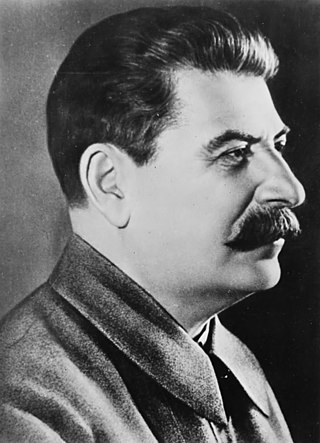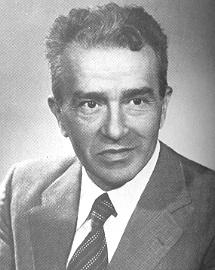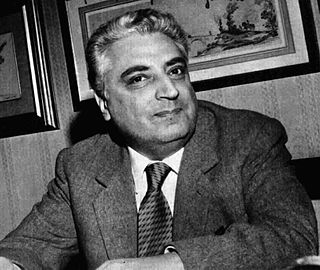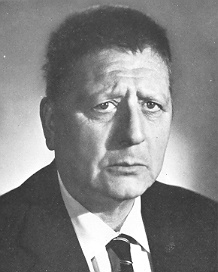
Totalitarianism is a political system and a form of government that prohibits opposition political parties, disregards and outlaws the political claims of individual and group opposition to the state, and controls the public sphere and the private sphere of society. In the field of political science, totalitarianism is the extreme form of authoritarianism, wherein all socio-political power is held by a dictator, who also controls the national politics and the peoples of the nation with continual propaganda campaigns that are broadcast by state-controlled and by friendly private mass communications media.

Pier Paolo Pasolini was an Italian poet, film director, writer, actor and playwright. He is considered one of the defining public intellectuals in 20th-century Italian history, influential both as an artist and a political figure. He is known for directing the films from Trilogy of Life and Salò, or the 120 Days of Sodom.

The Italian Communist Party was a communist and democratic socialist political party in Italy. It was founded in Livorno as the Communist Party of Italy on 21 January 1921, when it seceded from the Italian Socialist Party (PSI), under the leadership of Amadeo Bordiga, Antonio Gramsci, and Nicola Bombacci. Outlawed during the Italian fascist regime, the party continued to operate underground and played a major role in the Italian resistance movement. The party's peaceful and national road to socialism, or the Italian road to socialism, the realisation of the communist project through democracy, repudiating the use of violence and applying the Constitution of Italy in all its parts, a strategy inaugurated under Palmiro Togliatti but that some date back to Gramsci, would become the leitmotif of the party's history.

Giacomo Matteotti was an Italian socialist politician and secretary of the Partito Socialista Unitario. He was elected deputy of the Chamber of Deputies three times, in 1919, 1921 and in 1924. On 30 May 1924, he openly spoke in the Italian Parliament alleging the Italian fascists committed fraud in the 1924 general election, and denounced the violence they used to gain votes. Eleven days later, he was kidnapped and killed by the secret political police of Benito Mussolini.

Palmiro Michele Nicola Togliatti was an Italian politician and statesman, leader of Italy's Communist party for nearly forty years, from 1927 until his death. Born into a middle-class family, Togliatti received an education in law at the University of Turin, later served as an officer and was wounded in World War I, and became a tutor. Described as "severe in approach but extremely popular among the Communist base" and "a hero of his time, capable of courageous personal feats", his supporters gave him the nickname il Migliore. In 1930, Togliatti renounced Italian citizenship, and he became a citizen of the Soviet Union. Upon his death, Togliatti had a Soviet city named after him. Considered one of the founding fathers of the Italian Republic, he led Italy's Communist party from a few thousand members in 1943 to two million members in 1946.

Pietro Ingrao was an Italian politician and journalist who participated in the Italian resistance movement. For many years, he was a senior figure in the Italian Communist Party (PCI).

Renzo De Felice was an Italian historian, who specialized in the Fascist era, writing, among other works, a 6000-page biography of Mussolini. He argued that Mussolini was a revolutionary modernizer in domestic issues but a pragmatist in foreign policy who continued the Realpolitik policies of Italy from 1861 to 1922. Historian of Italy Philip Morgan has called De Felice's biography of Mussolini "a very controversial, influential and at the same time problematic re-reading of Mussolini and Fascism" and rejected the contention that his work rose above politics to "scientific objectivity", as claimed by the author and his defenders.

Giovanni Amendola was an Italian journalist, professor, and politician. He is noted as an opponent of Italian fascism.

Pietro Sandro Nenni was an Italian socialist politician and statesman, the national secretary of the Italian Socialist Party (PSI) and senator for life since 1970. He was a recipient of the Lenin Peace Prize in 1951. He was one of the founders of the Italian Republic and a central figure of the Italian political left from the 1920s to the 1960s.

The Aventine Secession was the withdrawal of the parliament opposition, mainly comprising the Italian Socialist Party, Italian Liberal Party, Italian People's Party and Italian Communist Party, from the Chamber of Deputies in 1924–25, following the murder of the deputy Giacomo Matteotti by fascists on 10 June 1924.

Giustizia e Libertà was an Italian anti-fascist resistance movement, active from 1929 to 1945. The movement was cofounded by Carlo Rosselli, Ferruccio Parri, who later became Prime Minister of Italy, Emilio Lussu, Sandro Pertini, who became President of Italy, and other Italian anti-fascist refugees.

Giuseppe Prezzolini was an Italian literary critic, journalist, editor and writer. He later became an American citizen.

Corrado Alvaro was an Italian journalist and writer of novels, short stories, screenplays and plays. He often used the verismo style to describe the hopeless poverty in his native Calabria. His first success was Gente in Aspromonte, which examined the exploitation of rural peasants by greedy landowners in Calabria, and is considered by many critics to be his masterpiece.
Red fascism is a term equating Stalinism and other variants of Marxism–Leninism with fascism. Accusations that the leaders of the Soviet Union during the Stalin era acted as "red fascists" have come from left-wing figures who identified as anarchists, left communists, social democrats and other democratic socialists, as well as liberals, and among right-wing circles both closer to and further from the centre. The comparison of Nazism and Stalinism is controversial in academia.

Paolo Orano was an Italian psychologist, politician and writer. Orano began his political career as a revolutionary syndicalist in Italian Socialist Party. He later became a leading figure within the National Fascist Party, in part through his legitimization of antisemitism.
Cesare Rossi was an Italian fascist leader who later became estranged from the regime.

The Italian Social Movement was a neo-fascist political party in Italy. A far-right party, it presented itself until the 1990s as the defender of Italian fascism's legacy, and later moved towards national conservatism. In 1972, the Italian Democratic Party of Monarchist Unity was merged into the MSI and the party's official name was changed to Italian Social Movement – National Right.
Walter Piludu was an Italian politician for the Italian Communist Party (PCI).

Fascist Italy is a term which is used in historiography to describe the Kingdom of Italy when it was governed by the National Fascist Party from 1922 to 1943 with Benito Mussolini as prime minister and dictator. The Italian Fascists imposed totalitarian rule and crushed political opposition, while simultaneously promoting economic modernization, traditional social values and a rapprochement with the Roman Catholic Church.

Pietro Amendola was a communist Italian politician and journalist, who served in the Chamber of Deputies from 1948 until 1968. A war hero, and anti-fascist partisan, his father was Giovanni Amendola, a noted anti-fascist in the 1920s, and his brother, Giorgio, was also a communist politician.

















